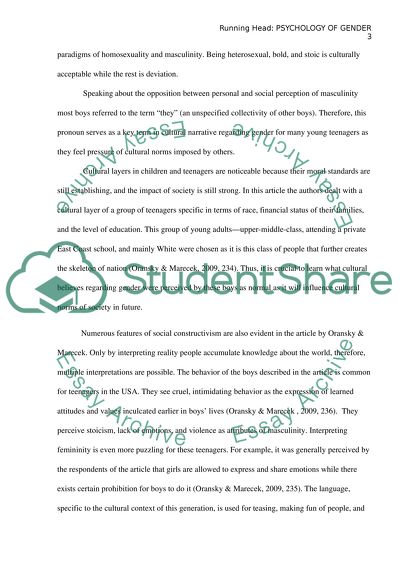Cite this document
(“Psychology of Gender - understanding interpretative psychological Essay”, n.d.)
Psychology of Gender - understanding interpretative psychological Essay. Retrieved from https://studentshare.org/psychology/1676938-psychology-of-gender-understanding-interpretative-psychological-research
Psychology of Gender - understanding interpretative psychological Essay. Retrieved from https://studentshare.org/psychology/1676938-psychology-of-gender-understanding-interpretative-psychological-research
(Psychology of Gender - Understanding Interpretative Psychological Essay)
Psychology of Gender - Understanding Interpretative Psychological Essay. https://studentshare.org/psychology/1676938-psychology-of-gender-understanding-interpretative-psychological-research.
Psychology of Gender - Understanding Interpretative Psychological Essay. https://studentshare.org/psychology/1676938-psychology-of-gender-understanding-interpretative-psychological-research.
“Psychology of Gender - Understanding Interpretative Psychological Essay”, n.d. https://studentshare.org/psychology/1676938-psychology-of-gender-understanding-interpretative-psychological-research.


